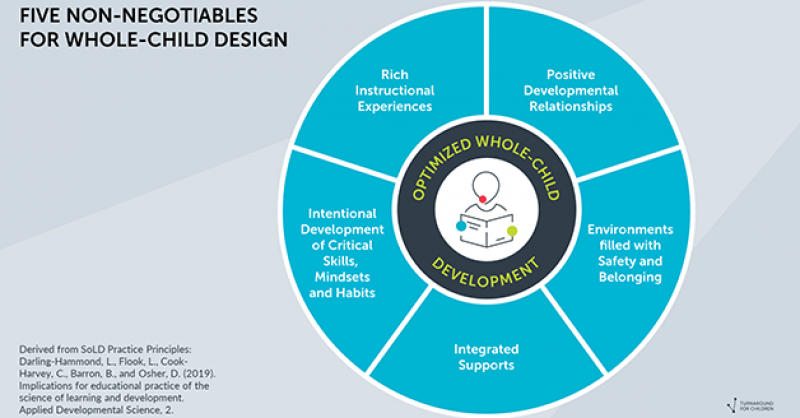Asset Mapping Toolkit: Collaborative Support for Developmental Practices

All young people have varied pathways in their development influenced by their family, community, and cultural contexts. These pathways take young people through multiple formal and informal programs, settings, and systems. They interact with adults across all of these places. A wealth of science tells us what elements of practices are essential for positive youth development. Adults can optimize learning by starting with strong relationships in environments filled with safety and belonging, providing individualized supports, rich instructional experiences, and intentionally developing skills, mindsets, and habits.1
These developmental practices are the dynamic supports young people need, in different ways and from different people, throughout their lives. Adults can learn these practices and develop strategies for putting them in place whenever and wherever they engage with young people. How much these developmental practices are used in part depends on the degree to which they are explicitly supported by regulations, policies, procedures, and other requirements across systems and setting. There may also be mandates on systems or agencies that constrain these developmental practices.2
Conducting asset mapping on the degree to which these practices are incentivized or constrained across multiple systems and programs provides the opportunity for cross-system conversation and learning on how to improve practices for all adults and all youth. In the summer of 2019, an asset mapping technical assistance process and toolkit were piloted. The asset map was completed through a combination of questionnaires, group facilitation, interviews, and a document review. Read about how the process went with the Minneapolis Youth Coordinating Board and the Worcester Youth Development and Professional Leadership Symposium.
Download the toolkit (PDF, 9 pages).
Related Reading:
- Collaboration Profile: Inside The Minneapolis Youth Congress, A Youth-Adult Partnership that’s Reshaping Local Policy
- Youth Voice: Finding My Voice through the Minneapolis Youth Congress
1 Darling-Hammond, L., Flook, L., Cook-Harvey, C., Barron, B., & Osher, D. (2020). Implications for educational practice of the science of learning and development. Applied Developmental Science, 24(2), 97-140. https://doi.org/10.1080/10888691.2018.1537791
2 National Research Council and Institute of Medicine. (2002). Community Programs to Promote Youth Development. Committee on Community-Level Programs for Youth. Jacquelynne Eccles and Jennifer A.Gootman, eds. Board on Children, Youth, and Families, Division of Behavioral and Social Sciences and Education. Washington, DC: National Academy Press. https://www.nap.edu/read/10022/chapter/1#ii
